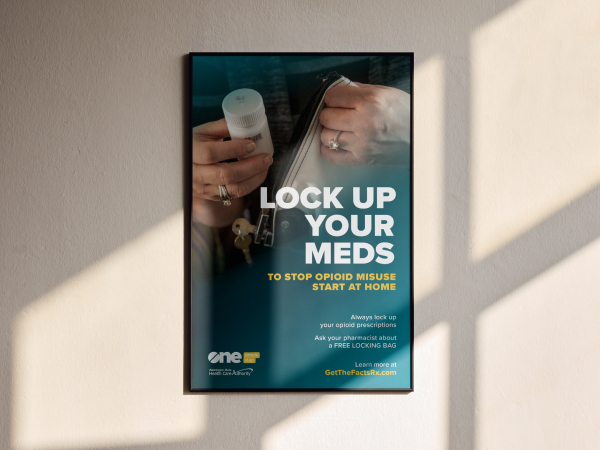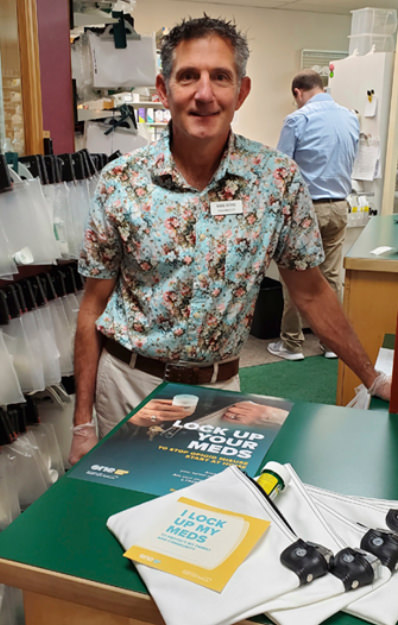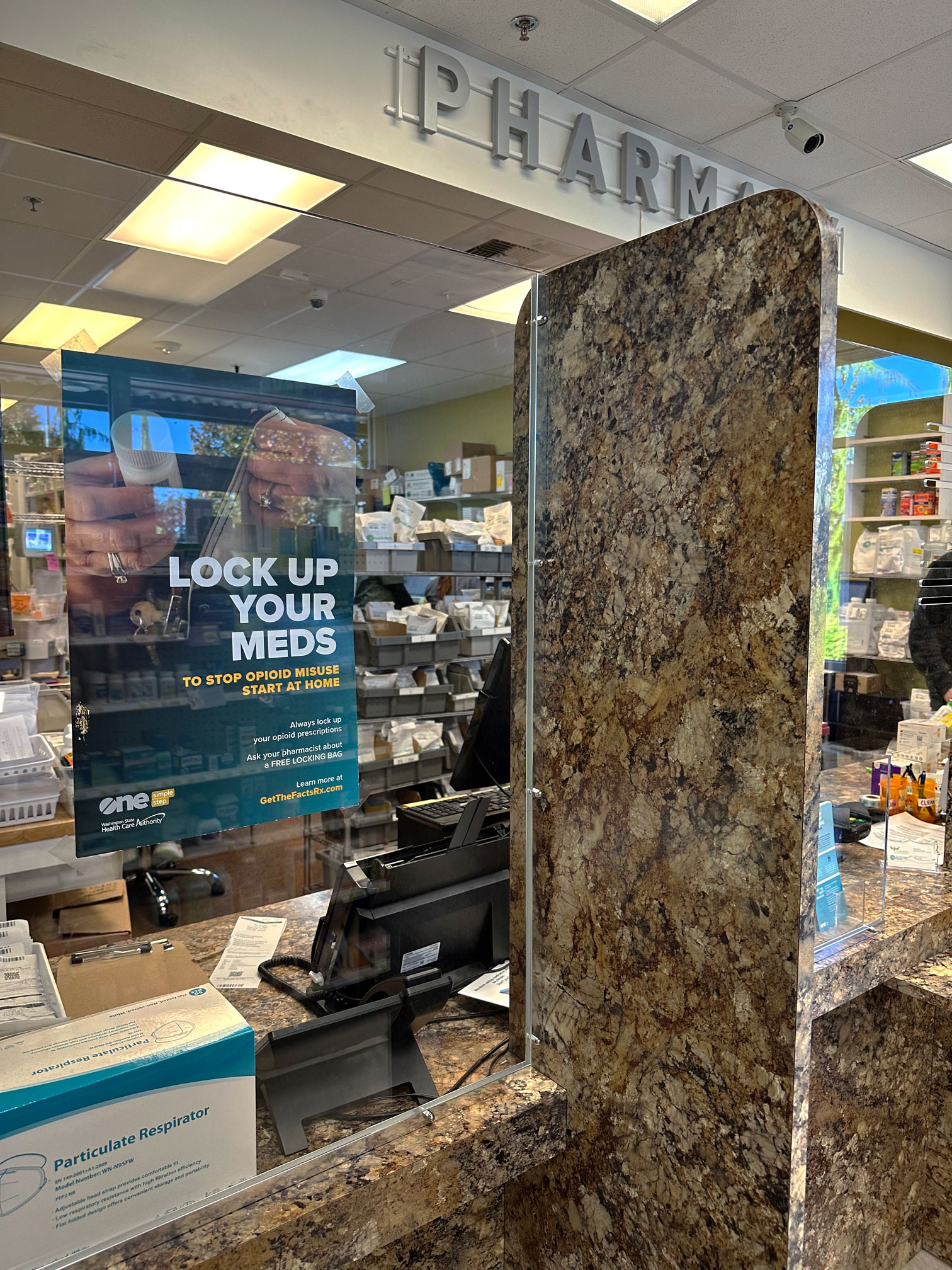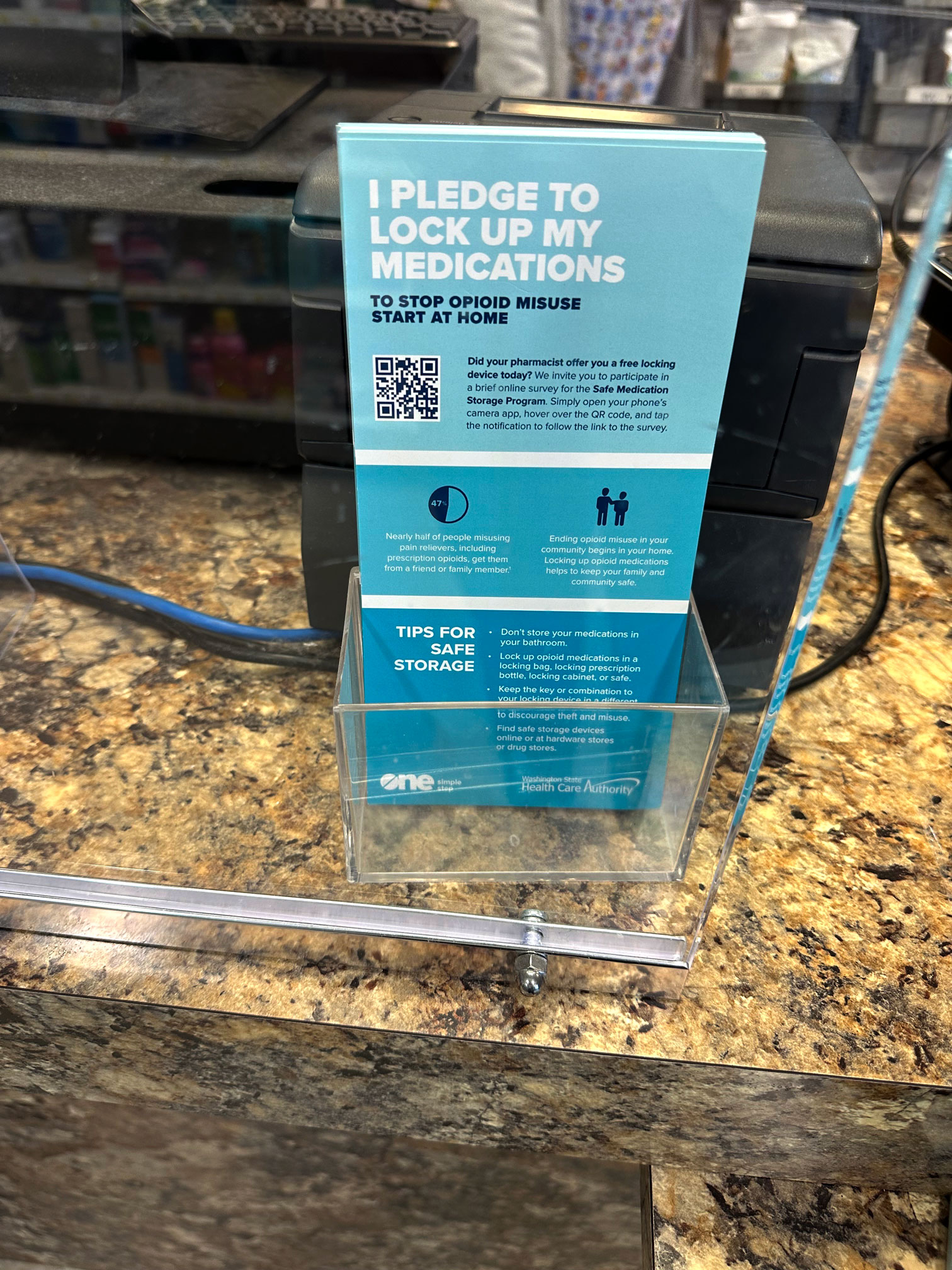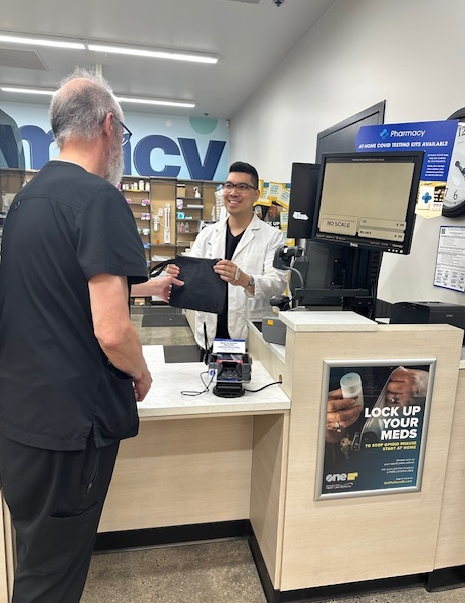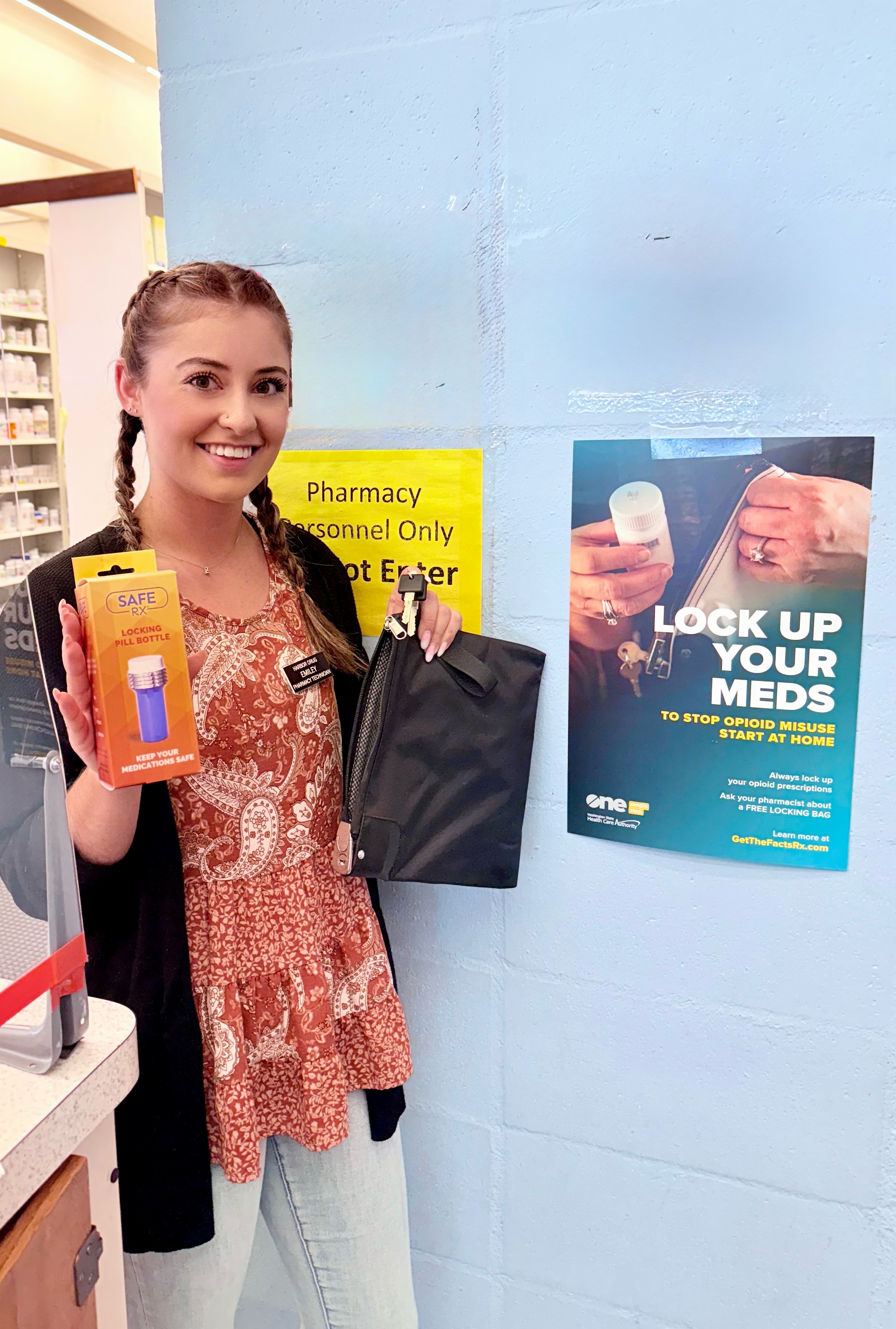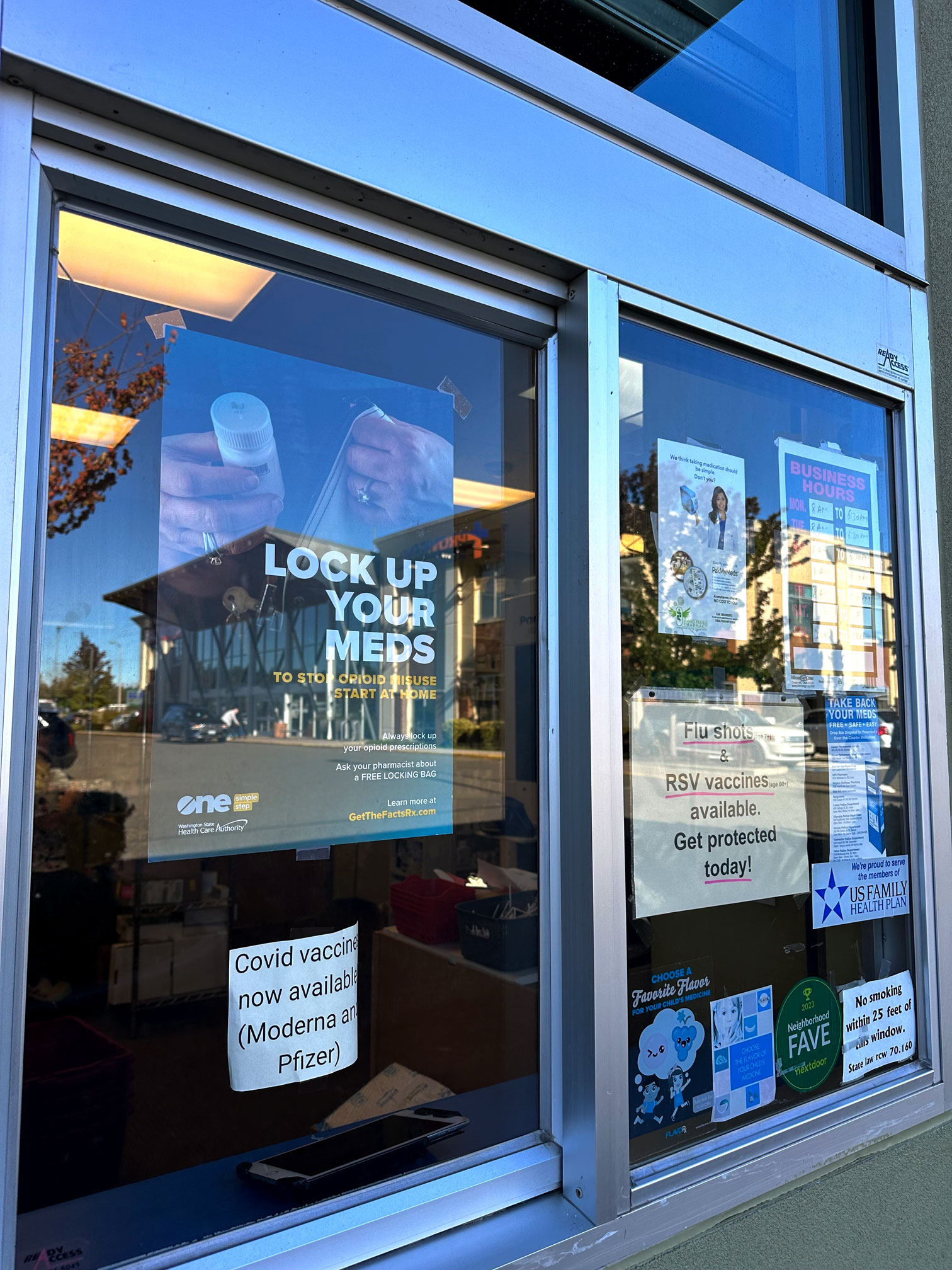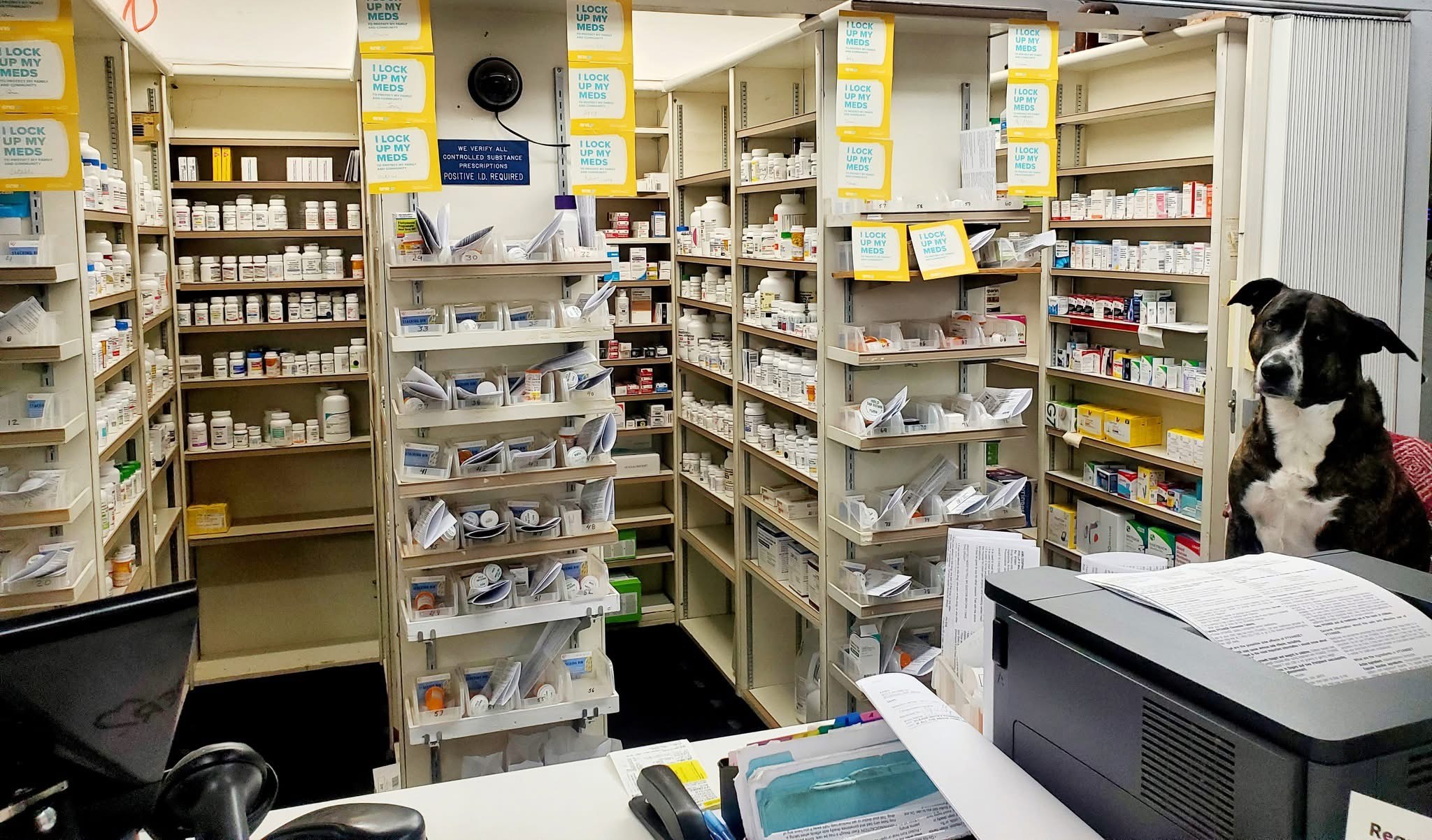Pharmacy safe storage program
Join pharmacies around Washington that are making a difference. Sign up for the 120-day program to receive free materials and free locking bags for your customers.
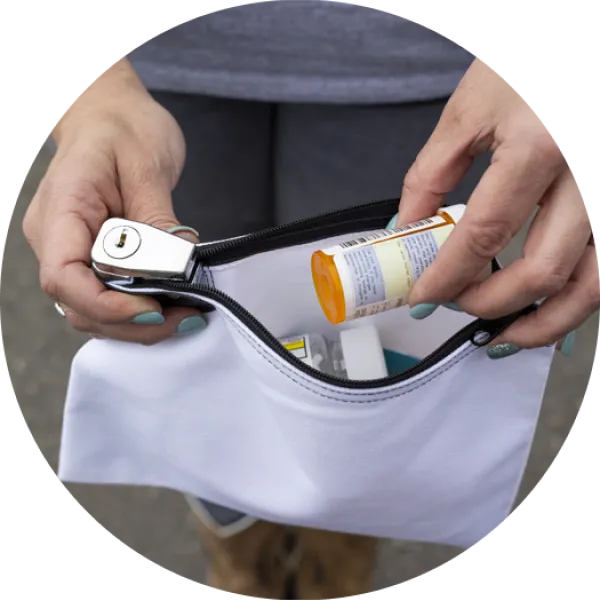
Program components
Join pharmacies around Washington that are making a difference. Sign up for the 120-day program to receive free materials and free locking bags for your customers.
Program training video
What we provide
After you sign up for the 120-day program, we will be in touch with you to go over the program requirements and materials that you will receive to implement the program in your pharmacy.
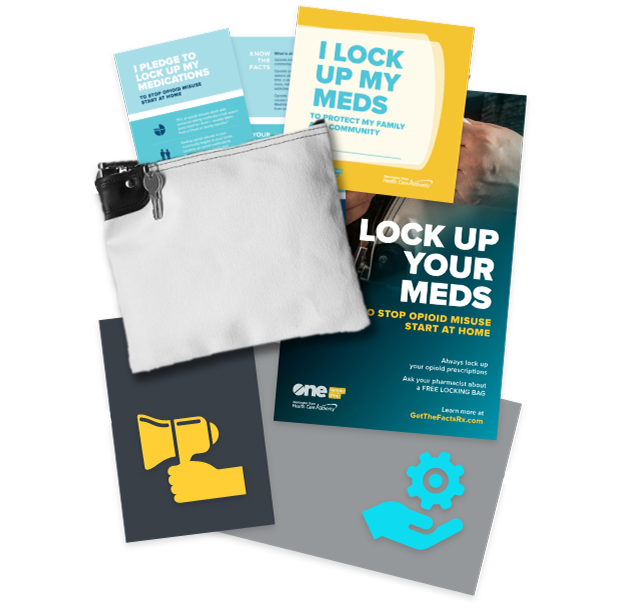
- Locking devices
A supply of free medication locking bags and prescription locking bottles to provide to patients who receive opioid prescriptions. - Promotion
Promotion of your pharmacy's involvement within your market area through media relations and social media - Promotional materials
Promotional materials including posters, informational rack cards, ready-to-use social media posts, eNews content and pledge forms. - Ongoing support
Ongoing support to ensure a straight-forward and smooth implementation of the program.
Program materials
When you sign up for the program, we will send you all of the materials that you need. If you need extra toolkit materials you can download them here and print them at a local print shop.
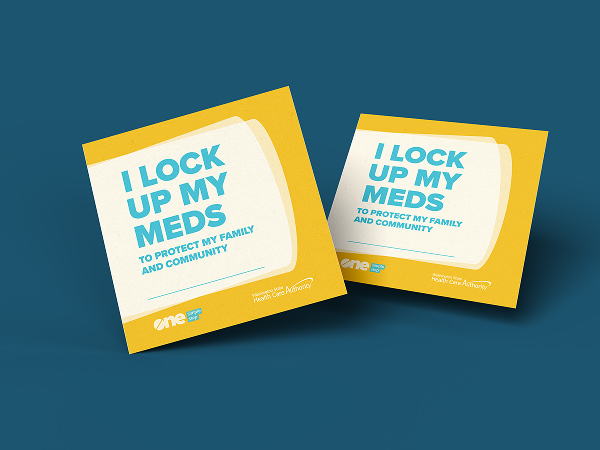
Pledge form
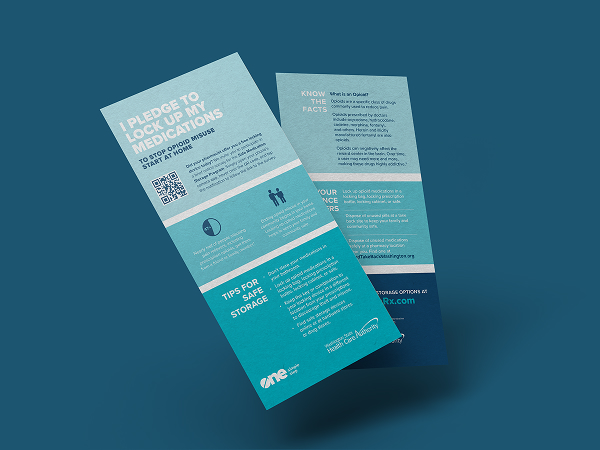
Rack card
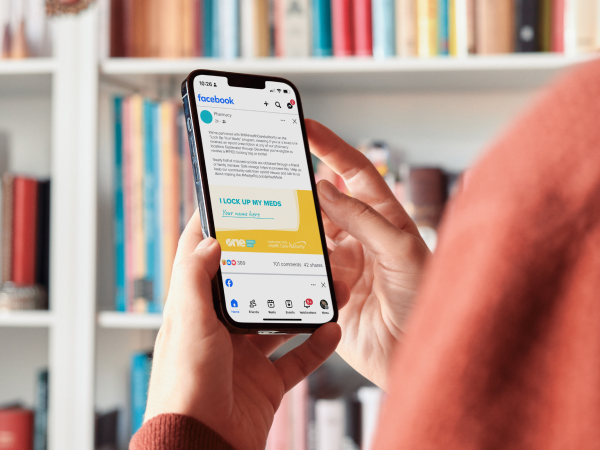
Social media posts
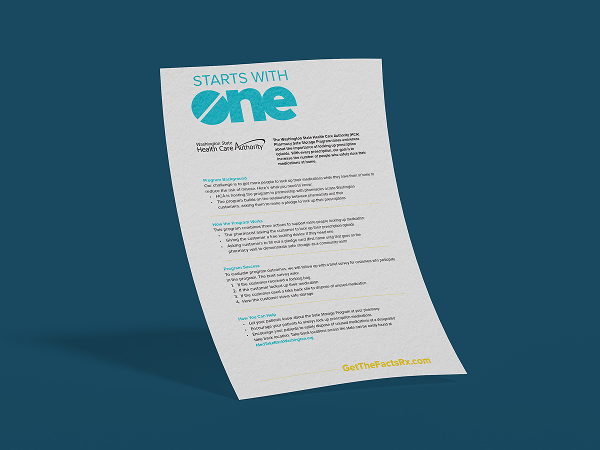
Fact sheet
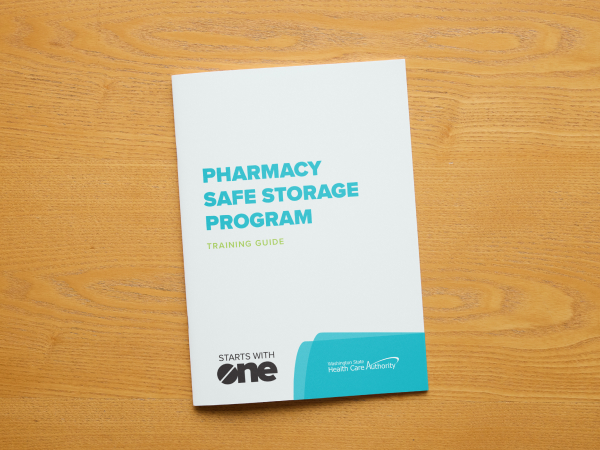
Training guide
About the program
The Pharmacy Safe Storage program, funded by the Washington State Health Care Authority, challenges pharmacies across the state to help keep opioid prescriptions safely stored by providing free locking bags for patients and asking community members to pledge to lock up their meds.
The program highlights the leadership role pharmacies play in advising people about preventing opioid misuse. The program shows that by simply asking customers if they would commit to locking up opioid medications, and providing a free locking bag to those who needed it, pharmacists successfully helped people follow through on this important prevention behavior.
Since the program began in 2020

People have talked with a pharmacist about safe storage.

Locking bags have been distributed to patients with opioid prescriptions.

